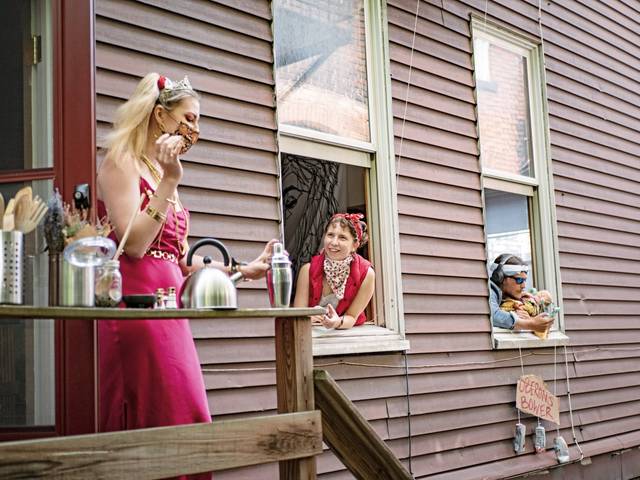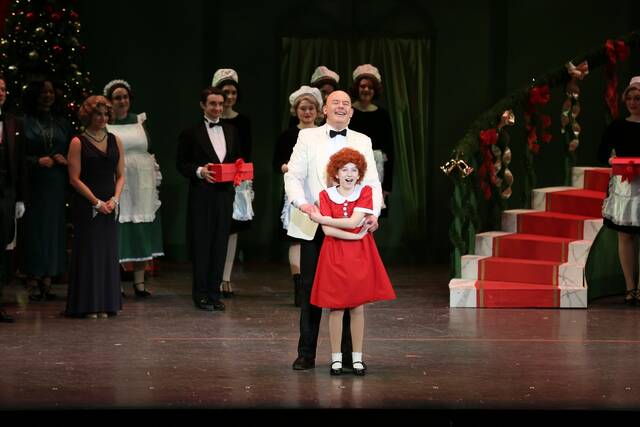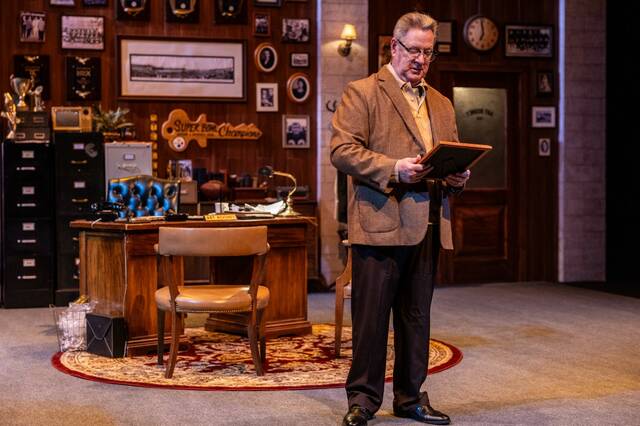For the seniors involved in Carnegie Mellon University’s esteemed drama program, this was a year they had been looking forward to — years of study culminating in an entire season of 22 stage shows over the course of the school year.
For now, the entire first semester of shows has been postponed to the second semester. But the school has yet to decide exactly how that will work. So, for the first time ever, CMU drama students are without live theater sanctioned through the school.
However, at least one enterprising group of students decided that when life hands you lemons, make lemonade. The other applicable cliché is “all the world’s a stage.” At least that’s how Adira Rosen sees it.
Rosen, a 21-year-old senior directing major from San Diego, was sitting with fellow CMU drama students in Schenley Park one recent afternoon. The conversation centered on just how much they missed performing theater. So they resolved to produce their own production of Shakespeare’s “A Midsummer Night’s Dream” with a small cast.
The choice of Shakespeare was driven in part by the fact that all of Shakespeare’s works are in the public domain, meaning no rights fee would have to be paid. But there were other logistical concerns.
“We were trying to figure out how to perform ‘A Midsummer Night’s Dream’ with a tiny little cast in a parking lot somewhere and have people come and sit around in a socially distanced manner,” said Rosen. “But no one would lend us their parking lot.”
So, they came up with another approach. They would perform Shakespeare, free of charge, from the front porches, balconies, fire escapes and in the windows of three separate apartment houses located between Ellsworth and Fifth Avenues in Shadyside. The performances, with minimal costuming, took place from Aug. 28-31.
Rosen acted and directed along with fellow directors Cameron King, 23, of New York and Jackson Eick, 20, of Los Angeles. In all 14 people were involved in staging the production — 13 actors, including the three actor/directors, and one stage manager.
“One thing we’ve definitely been taught in the School of Drama is using your space. Usually that’s in the context of a traditional theater, but obviously this is not the case. So, this time using the space meant, in my house, performing inside our home,” Rosen said. “We have these windows that face an alley and so we were kind of like (the 1960s TV show) ‘Laugh-In,’ popping in and out of these windows and doors and engaging with the audience in that way.”
“A Midsummer Night’s Dream” involves three main character groups — the mechanicals (six characters performing a play-within-a-play), the lovers whose families are at war, and the fairies in the midst of a civil war between their king and queen. Each house was given a character group. Rosen’s apartment building was home to the fairies.
Audience members signed up online for one of three slots limited to six audience members at a time for each performance at each house, a total of 18 per show. Chalk-mark X’s on the sidewalk designated the safe social distances.
An audience member signed up for the first slot would stand outside Rosen’s building and see her and her roommates performing all of the fairy scenes back-to-back. They would then walk to another house a few minutes away and see all of the lovers’ scenes, followed by a stroll to another house for the mechanicals’ scenes.
Rosen acknowledged that the scenes were not done in the order they are in when the play is staged under normal circumstances.
“The audience could choose whatever order they wanted to see the show in. The chronology of it doesn’t matter. Once you have seen all the scenes, you’ve seen the whole show.”
And what a show it was.
“It was great,” said audience member Toby Tabachnick, 58, of Mt. Lebanon. “We’re big theatergoers in my household and we’ve been missing theater so much and this production was completely delightful … They did it so safely. If the players leaned too far out of the windows, they made sure they had a mask on. It was so great that even passersby on the sidewalk would stop and watch and join in on the applause. It was a wonderful experience.”
Unfortunately for the audience, the play was shut down after just four performances because of complaints about the noise from some neighborhood residents. Their goal had been to do nine performances but, in the face of being evicted from their apartments in the middle of a pandemic, the student actors had no choice but to close the show.
“We are just artists trying to perform,” Rosen said. “We were really hoping to share with people that we’re struggling too and this is bigger than just a couple of teenagers wanting to scream Shakespeare from their balconies.
“It’s about losing our community and losing our outlet and everything that comes with that and asking our community to support us and see us as essential and theater and storytelling as important in bringing a community together.”
Rosen said there are no plans in the works to remount the production. But anyone who has an available parking lot might just want to get in touch with her (adirarosen.com).








